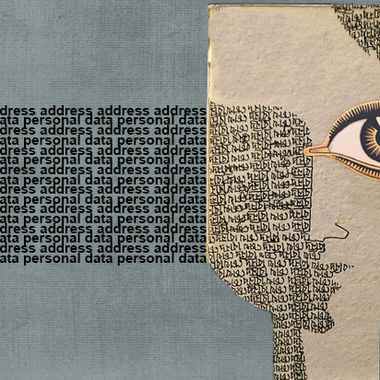
Odds are high that you clicked through to this article from a link on Facebook. All EVN Report articles are now “announced” on Facebook shortly after they are published. If that step isn’t taken, it barely gets read. This dependence is not unique to EVN Report or even to Armenia. News platforms across the world get much of their traffic from referral links rather than users logging in directly to their website (or their own app). Social media, and especially Facebook, have reshaped the way people and organizations communicate across the globe.
Though Armenia is not unique, its embrace of Facebook – and, to a lesser extent, its subsidiaries WhatsApp and Instagram – has been unconditional. Once upon a time, alternate Russia-centered social media sites Odnoklassniki and vKontakte were formidable rivals to Facebook in the Armenian market. Accurate numbers are notoriously difficult to nail down but by some estimates, the number of Facebook users in Armenia ballooned from 560,000 in November 2013 to 1.25 million in September 2018 to 1.6 million in April 2020. To put those figures in perspective, only 1.26 million citizens voted in the December 2018 national election.
There are many Armenian businesses that forego setting up a website altogether, making do instead with only a free Facebook Page. The same goes for political figures; Facebook has established itself as the main political forum in Armenia. Whereas politicians in English-speaking countries tend to lean on Twitter, in Armenia, candid publicly-viewable Facebook posts from an official Page or even just a personal account are the primary way to reach out to constituents. The posts themselves become news when outlets reproduce them in their entirety on their website, and then post the article to their own Facebook page to reach their own audience. Press conferences and parliamentary sessions are all broadcast on Facebook Live. The Armenian Unified Infocenter, set up during the COVID-19 pandemic, primarily puts out announcements through its Facebook Page. While this information may be available on other platforms as well, Facebook is where it finds its largest audience. Also related to the pandemic, the Prime Minister asked Armenians to send in photos of those not obeying safety guidelines as a “public monitoring” initiative designed to socially pressure citizens into compliance. The initiative was announced over Facebook and the worst examples are reposted to the Prime Minister’s own Facebook Page.
Facebook is even becoming integral telecommunications infrastructure. It is rare for phone plans, whether mobile or land-line, to offer unlimited minutes or SMS text messages in Armenia. Many companies do, however, zero-rate data used for Facebook, Messenger and WhatsApp, meaning that they do not count toward monthly data limits (a practice that contravenes the net neutrality principle). As a consequence, it is just as common to receive a VoIP call over one of these apps as it is to receive one using the actual voice network. You can even call your bank - and wait on hold - through WhatsApp. If your water meter is inside your apartment, you may be expected to send a photo of your meter every month to the water company representative over WhatsApp as the primary meter reading procedure.
The unavoidable ubiquitousness of Facebook in Armenians’ daily lives means that a foreign for-profit company knows who your acquaintances are and who are truly your closest friends. If you have their app on your phone, it likely knows where you visit, work and live, when you change your normal routine and when you added a new number as a contact.
It knows what your political preferences are. Can it sway them? Can it influence the outcome of an Armenian election? Is Armenia’s reliance on Facebook a national security vulnerability?
Swaying Votes
A 2010 scientific experiment conducted by Facebook found that it could increase voter turnout in that year’s U.S. congressional election by displaying a message to users that identified some of their closest friends who had already voted, making use of behavioral science theory. The results sent shivers down the spines of the political establishment. They implied that, if a race was close enough, Facebook could effectively decide the winner by choosing to only display the message to supporters of one political party (making use of labels that it already assigns to users based on their browsing habits and other factors, including data from non-Facebook sources).
In 2014, Facebook published the results of another experiment, in which it found that it could control the moods of its users. It was able to demonstrate “emotional contagion,” whereby users whose news feeds were modified to contain more negative content tended to consequently share more negative content themselves, while those who were fed more positive content posted happier statuses themselves. The experiment was criticized by ethicists for only obtaining the consent of test subjects to participate through small-print buried in the site’s Terms of Service.
Is it not reasonable to conclude that, if it chose to, Facebook could manipulate the outcomes of Armenian election events such as the now unlikely-to-proceed constitutional referendum? More probably, simply by not paying attention to content in the Armenian language (which very few of its employees understand), is Facebook leaving the Armenian electorate vulnerable to other actors who would readily use these principles against us?
While a new law will reduce donation limits to Armenian political parties, is it acceptable that a foreign company can accept unlimited amounts of money from other foreign companies to flood the media diet of Armenian voters and shape their perception of reality? Can the Armenian government really do anything about it?
Beyond the Government’s Reach
What makes Armenia’s situation different from its counterparts in the United States or Europe, however, is how one-sided the relationship is. The U.S. Congress could, if it deemed it prudent, subject the American corporation that runs the site to legally-binding regulation. It could even split it into separate companies, forcing it to spin off WhatsApp and Instagram. In 2019, the U.S. Federal Trade Commission (FTC) imposed an unprecedented $5 billion fine on Facebook for privacy violations. The European Union has also imposed multi-million euro fines and its GDPR rules are binding on the company. Facebook has employees and servers in both jurisdictions and cannot ignore their laws.
Facebook does not have a foothold in China, however, and can ignore that country’s demands to hand over information about users. For that reason, since riots broke out in China’s western Uyghur-dominated Xinjiang province in 2009, Facebook has been blocked in that country.
To date, the Armenian government has made no attempt at any kind of regulation over Facebook but it has requested user data from the company. For transparency, Facebook publishes statistics about requests for user data from governments and whether they cooperated. Often, these requests are from law enforcement bodies attempting to collect evidence for the prosecution of crimes. In authoritarian countries, they can also be attempts to identify and target political dissidents. The statistics for Armenia show that such requests have markedly increased since the Velvet Revolution, with about half of them resulting in some data being – voluntarily – handed over. The previous government under Serzh Sargsyan very briefly blocked Facebook in 2016 in the midst of a hostage crisis in Yerevan but doing so only cast a larger spotlight on the event, a phenomenon known as the Streisand Effect.
Armenian Laws Do Cover (Some) Facebook Users
If Armenian authorities did create legal obligations on Facebook, say for example to control disinformation, the company could theoretically choose to ignore them. The same cannot be said for residents of Armenia, however. Quite famously, an Armenian resident was arrested in January 2020 for posting disinformation under a false identity that the National Security Service (NSS) deemed to be threatening to national security. In another case this year, the Government Ombudsman referred a Facebook user to law enforcement for alleged violation of the new hate speech law, doing so via a post on his own Facebook Page. No charges were laid, however, as police determined that the misogynistic post did not overtly incite violence.
If these two users happened to be living outside Armenia’s borders, however, there is presumably little that government authorities could do about it. Blocking access to the website is way beyond the Overton window of acceptable policy. On June 1, 2020, an anonymous Facebook Page posted a data leak identifying the names, dates of birth and addresses of the first 132 patients who died of COVID-19 in Armenia. The post is still up and publicly-viewable despite family members of the deceased calling out the invasion of privacy in the comment section. The Page’s Transparency section says that the administrator is based in Russia.
Where Else Can You Go?
After taking a lot of heat in the wake of the 2016 U.S. election, Facebook eventually abandoned its laissez-faire attitude toward content on its platform and committed to be more conscientious in helping users identify when the information they were seeing was false or coming from an unreliable source. It remains to be seen whether its staff will have the language skills and cultural understanding to apply the new principles to the Armenian context.
If users start getting fed up with Facebook, currently, there is nowhere else for them to go that offers the same extent of community. But four co-founders are hoping to change that.
During the 2019 WCIT Conference in Yerevan, Serj Tankian, Alexis Ohanian, Eric Esrailian and Yervant Zorian announced that they will start developing a new platform for Armenians to engage together online. Called HyeConnect, it will be a not-for-profit outlet to bring together Armenians for discussions based on mutual interests, promote events (both in-person and on-line), and collaborate on projects that have a fixed goal and end-date. It is currently being developed by Armenian programmers and many of the final details have yet to be determined.
Yervant Zorian, Chief Architect at Synopsys and Founding President of the Armenian Virtual College, as one of the co-founders of HyeConnect, is overseeing the technical development of the project. In an interview, he mentioned that they are exploring different gamification features to reward engagement, similar to how reddit awards “karma” points to its most active users. They hope to reach the beta-testing stage in the coming months and will be looking for test users at that time to help guide along the rest of the development process. Growing out the user base from this initial group will be managed so as to keep the focus of the site on Armenian issues (though users will not need to be ethnically Armenian).
Zorian did also mention that there will be some content moderation built-in but the specifics have not yet been finalized. “We don’t want discussions to go extremist and create unnecessary tension. We want HyeConnect to be a welcoming place for everybody,” he said. Privacy will be baked into the platform’s design as it eschews the public-by-default bias that is often pushed by Facebook, Twitter and Instagram.
Unlike Facebook, HyeConnect will be domiciled in Armenia, and thus be subject to Armenian laws. When asked if he was concerned that a local presence could leave it vulnerable to government interference, Zorian replied that he trusts the Armenian government to trust the HyeConnect founders to set the direction for the new community.
If you want to read EVN Report articles without having to rely on Facebook’s algorithm, sign up today for our email newsletter.
Also, join our new Telegram channel at: https://t.me/evnreport
Follow us on Twitter: https://twitter.com/evn_report
Instagram: https://www.instagram.com/evnreport/
Subscribe to our YouTube channel: https://www.youtube.com/channel/UCD4dlFFs5bKTcW5cPv_OarA
And, of course, Facebook: https://www.facebook.com/evnreport/
You can also subscribe to our podcasts on your favorite podcast platform.
If you really, really want to, make us your homepage to always stay up-to-date.
also read
Post-Truth Armenia and the Media
By Maria Titizian
The fake news phenomenon is not uniquely Armenian. It’s a global challenge, but when the stakes are so high following the Velvet Revolution, journalists need to rediscover their mission and have an honest discourse about their role in the state of the media landscape.
A Country Where the Word Privacy Does Not Exist
By Samvel Martirosyan
Is Armenian society concerned about privacy or the protection of personal data? Samvel Martirosyan is doubtful.
Digital Politics: Democracy in a Transforming World
By Avnik Melikian
In critical post-revolutionary times, public discourse shapes politics. Thus, it is important to be aware of the nature of our digital-political environment. Everything we read, share or say on social media is not necessarily a reflection of the truth.
Fighting Fake News or Censoring Speech Online
By Lusine Sargsyan
Finding the proper tools to combat the spread of misinformation and fake news on social media networks has confounded many societies and governments. State-authorized action could threaten free speech.
It Has To Be Said: Infodemic or the Epidemic of Misinformation
By Maria Titizian
Parallel to the coronavirus pandemic taking over the world, an infodemic is causing strain and impacting mental health. This week’s editorial, once again, looks at the role of every person inhabiting the earth.
by the same author
Logging Your Internet Activity: What's True and What's Not
By Harout Manougian
A draft document penned by an independent government regulator has raised important questions about digital privacy. Though the proposal definitely has issues, the rumors it sparked are alarmist and exaggerated.
Banking in Armenia: One Diasporan’s Experience
By Harout Manougian
Armenian banks offer 9% interest on a one-year term deposit. Harout Manougian explains what you need to know before opening an account.
Buying Real Estate in Armenia: One Diasporan’s Experience
By Harout Manougian
Are you interested in purchasing a home in Yerevan? If so, Harout Manougian offers some invaluable information and advice and more importantly, tips on how to avoid the inevitable pitfalls in an unregulated real estate market.












EVN Report welcomes comments that contribute to a healthy discussion and spur an informed debate. All comments will be moderated, thereby any post that includes hate speech, profanity or personal attacks will not be published.